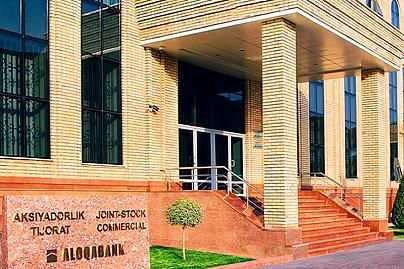
Despite the pandemic, Uzbekistan’s privatisation plans forge ahead
The virus has caused enough economic stress that the European Bank for Reconstruction and Development (EBRD) recently suggested a slow-down of major privatisations might be wise. “Earlier plans for large-scale privatisation of state-owned banks and enterprises may have to be delayed in case of slower-than-expected economic recovery,” the bank’s annual country assessment said.
But in fact despite the pandemic’s devastating impact on Uzbekistan’s major markets, and despite no growth at all in the first six months as the virus took hold, the nation finished the year with a surprising GDP upswing.

So large-scale privatisation looks set to proceed on schedule. In his year-end address to the Oliy Mazhlis, Uzbekistan’s parliament, President Shavkat Mirziyoyev announced that preparations will be made for the privatisations of Sanoatkurilisbank, Asaka Bank, Mortgage Bank, Aloqa Bank, Turon Bank and Kishlock Kurilish Bank. Negotiations are underway for the acquisition of the state’s stake in at least one of the leading banks by strategic investors. State stakes in scores of other major enterprises, including 83 oil and gas companies, will be put up for auction.
He re-emphasised that his administration’s top goal is to make the private sector, not the state, the main driver in the economy. He envisages the number of Uzbekistan enterprises with state ownership to be reduced by two-thirds over the coming two years.
By any stretch, this is a huge change. As a January 2020 working paper by the Asia Development Bank (ADB) pointed out, “State-owned enterprises (SOEs) in Uzbekistan dominate and have significant influence on the performance of many sectors in the economy, including natural resources, energy, manufacturing, telecommunications, transport and agriculture.”
Mirziyoyev’s administration is not the first to announce privatisation plans in the three decades since Uzbekistan broke away from the Soviet Union. The previous attempts were disappointing. Major enterprises proved to be unsaleable and, by and large, foreign investors chose to avoid the risks presented by a largely unreformed post-Soviet economy.
Much has changed under Mirziyoyev. The US State Department’s 2020 assessment of Uzbekistan’s investment climate concluded that policies have been implemented which are “focused on improving Uzbekistan’s investment attractiveness including through adoption of a new currency regulation law to guarantee freedom of current cross-border and capital movement transactions; a new law on investment activities to guarantee foreign investors’ rights; and, a new tax code featuring lower and more equitable tax rates and simplified reporting requirements.”
One of the biggest changes has been the approach to privatisation itself. The objective now is not so much the proceeds from sales, but increased competition and efficiency. The hope now is that, even where privatisation isn’t foreseen -- among natural monopolies and strategic sectors -- international corporate standards will nonetheless prevail.
Sir Suma Chakrabarti, former president of the EBRD, and now adviser to Mirziyoyev on economic development and governance, said in a recent interview, Mirziyoyev has made “clear the link between reforms and what the public value such as jobs, better education and healthcare.”

The larger plan is to modernise the economy, to make it less dependent on unprocessed resource exports and to increase value-added production. The government has accepted that this will require a vastly improved management pool which it hopes will come with foreign direct investment alongside improved domestic education.
As the US State Department puts it:
“The policy of liberalization reforms, initiated by the government in 2016, is paying off: the total volume of foreign direct investment (FDI) attracted to Uzbekistan has grown from about $1.6 billion in 2018 to $4.2 billion in 2019. Uzbekistan was named as one of the top 20 “global improvers” in the World Bank’s 2020 Doing Business report, and the 2019 Country of the Year award winner by The Economist.”
Uzbekistan’s Finance Ministry is predicting $7.81 billion in FDI for 2021.
Whether or not they are scheduled for privatisation, many of Uzbekistan’s leading state-owned firms are being nudged towards the international financial markets. In the year ahead, for instance, the huge Navoi Mining and Metallurgical Plant, gas monopoly Uzbekneftegaz, hydroelectricity producer Uzbekhydroenergo, and auto manufacturer Uzavtosanoat plan to raise international funds without government guarantees. Several have already or are in the process of securing international credit ratings. The prospectus requirements alone are forcing changes to corporate culture at lightning speed.
Across the nation’s corporate landscape, pandemic-fueled Zoom webinars are all the rage, on subjects ranging from staff training and up-skilling, to meeting the ESG (Environmental, Social, and Corporate Governance) expectations of international investors. Where once the heads of state enterprises were treated as senior bureaucrats -- and officially ranked at ministerial or deputy ministerial level -- they are now expected to perform as genuine CEOs.











